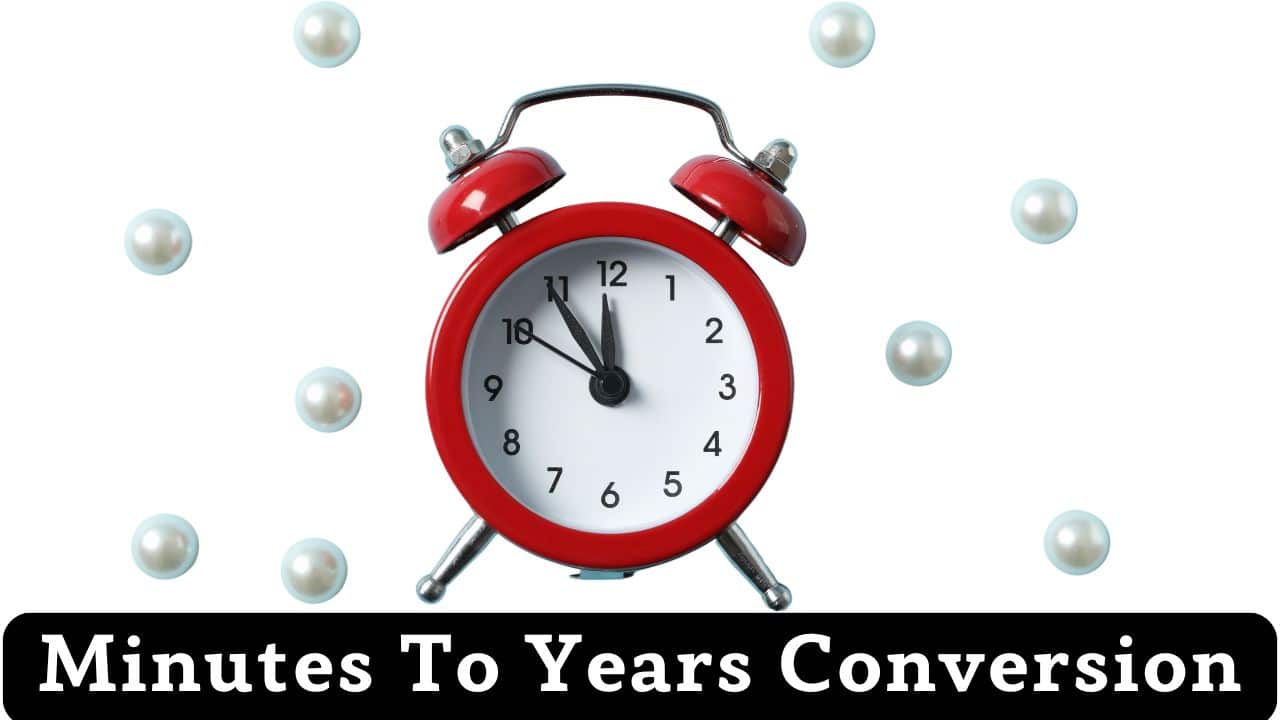Minutes to Years Calculator
Precise time conversion with detailed breakdowns, quick presets, and educational insights

How Many Minutes in Years
There are exactly 525,600 minutes in a year (365 days). For leap years, there are 527,040 minutes (366 days). Converting between minutes and years helps with long-term planning, project management, and understanding time scales in meaningful contexts.
The Conversion Formula
Years = Minutes ÷ 525,600
Minutes = Years × 525,600
This calculation uses the standard year of 365.25 days (accounting for leap years), which equals 525,600 minutes for precise long-term calculations.
Example: 1,051,200 minutes ÷ 525,600 = 2 years, or 5 years × 525,600 = 2,628,000 minutes
Time Unit Breakdown
Understanding the time hierarchy:
1 Year: 365.25 days (accounting for leap years)
1 Day: 24 hours = 1,440 minutes
1 Hour: 60 minutes
1 Minute: 60 seconds
The .25 extra day accounts for leap years, making calculations more accurate over long periods
Quick Reference: Minutes to Years Conversion
Common Conversions
1 Hour: 60 minutes = 0.000114 years
1 Day: 1,440 minutes = 0.00274 years
1 Week: 10,080 minutes = 0.0192 years
1 Month: ~43,200 minutes = 0.0822 years
1 Year: 525,600 minutes = 1.000 years
1 Decade: 5,256,000 minutes = 10.000 years
Practical Applications
Project Planning: Convert meeting minutes into yearly time allocation for long-term projects and resource planning.
Life Planning: Understand how daily habits (exercise, reading, learning) accumulate over years when measured in minutes.
Data Analysis: Convert time-series data from minutes to years for trend analysis and forecasting.
Useful for understanding the cumulative impact of small time investments over extended periods
Interesting Time Facts
Lifetime Perspective: The average human lifespan of 80 years equals approximately 42,048,000 minutes, putting daily activities into a broader perspective.
Career Time: A 40-year career spans roughly 21,024,000 minutes, while the actual working time (8 hours/day, 250 days/year) is only about 4,800,000 minutes.
Historical Context: Major historical periods can be understood in minutes – the 20th century lasted 52,560,000 minutes, making recent events feel more immediate.
Converting large time periods to minutes helps visualize the true scale of time and makes abstract periods more concrete and relatable.
